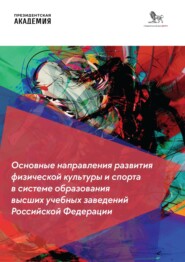По всем вопросам обращайтесь на: info@litportal.ru
(©) 2003-2024.
✖
The German Classics of the Nineteenth and Twentieth Centuries, Volume 10
Настройки чтения
Размер шрифта
Высота строк
Поля
I beg you to convey to your wife my respectful compliments, and to accept kindly the assurance of my love and esteem.
BISMARCK.
Schönhausen, February 1, '47.
I had only waited for daylight to write you, my dear heart, and with the light came your little green spirit-lamp to make my lukewarm water seethe—though this time it found it ready to boil over. Your pity for my restless nights at present is premature, but I shall give you credit for it. The Elbe still lies turbid and growling in her ice-bonds: the spring's summons to burst them is not yet loud enough for her. I say to the weather: "If you would only be cold or warm! But you stay continually at freezing-point, and at this rate the matter may long drag on." For the present my activity is limited to sending out, far and wide, from the warm seat at the writing-table, diverse conjurations, whose magic starts quantities of fascines, boards, wheelbarrows, etc., from inland towards the Elbe, perchance to serve as a prosaic dam in restraint of the poetical foaming of the flood. After I had spent the morning in this useful rather than agreeable correspondence, my resolve was to chat away comfortably through the evening with you, beloved one, as though we were sitting on the sofa in the red drawing-room; and with sympathetic attention to my desire the mail kept for my enjoyment precisely at this gossiping hour your letter, which I should have received by good rights day before yesterday. You know, if you were able to decipher my inexcusably scrawled note[3 - This note has been lost.] from Schlawe, how I struck a half-drunken crowd of hussar officers there, who disturbed me in my writing. In the train I had, with my usual bad luck, a lady vis-à-vis, and beside me two very stout, heavily fur-clad passengers, the nearer of whom was a direct descendant of Abraham into the bargain, and put me in a bitter humor against all his race by a disagreeable movement of his left elbow.
I found my brother in his dressing-gown, and he employed the five minutes of our interview very completely, according to his habit, in emptying a woolsack full of vexatious news about Kniephof before me: disorderly inspectors, a lot of damaged sheep, distillers drunk every day, thoroughbred colts (the prettiest, of course) come to grief, and rotten potatoes, fell in a rolling torrent from his obligingly opened mouth upon my somewhat travel-worn self. On my brother's account I must affect and utter some exclamations of terror and complaint, for my indifferent manner on receiving news of misfortune vexes him, and as long as I do not express surprise he has ever new and still worse news in stock. This time he attained his object, at least in my inner man, and when I took my seat next to the Jewish elbow in green fur I was in a right bad humor; especially the colt distressed me—an animal as pretty as a picture and three years old.
Not before getting out of doors did I become conscious of the ingratitude of my heart, and the thought of the unmerited happiness that had become mine a fortnight earlier again won the mastery in me. In Stettin I found drinking, gambling friends. William Ramin took occasion to say, apropos of a remark about reading the Bible, "Tut! In Reinfeld I'd speak like that, too, if I were in your place, but to believe you can impose on your oldest acquaintances is amusing." I found my sister very well and full of joy about you and me. She wrote to you, I think, before she received your letter. Arnim is full of anxiety lest I become "pious." He kept looking at me all the time earnestly and thoughtfully, with sympathetic concern, as one looks at a dear friend whom one would like to save and yet almost gives up for lost. I have seldom seen him so tender. Very clever people have a curious manner of viewing the world. In the evening (I hope you did not write so late) I drank your health in the foaming grape-juice of Sillery, in company with half a dozen Silesian counts, Schaffgotsch and others, at the Hôtel de Rome, and convinced myself Friday morning that the ice on the Elbe was still strong enough to bear my horse's weight, and that, so far as the freshet was concerned, I might today be still at your blue or black side[4 - In subsequent letters he speaks of her "blue gray-black eyes."] if other current official engagements had not also claimed my presence. Snow has fallen very industriously all day long, and the country is white once more, without severe cold. When I arrived it was all free from snow on this side of Brandenburg; the air was warm and the people were ploughing; it was as though I had traveled out of winter into opening spring, and yet within me the short springtime had changed to winter, for the nearer I came to Schönhausen the more oppressive I found the thought of entering upon the old loneliness once more, for who knows how long. Pictures of a wasted past arose in me as though they would banish me from you. I was on the verge of tears, as when, after a school vacation, I caught sight of Berlin's towers from the train.
The comparison of my situation with that in which I was on the 10th, when I traveled the same line in the opposite direction; the conviction that my solitude was, strictly speaking, voluntary, and that I could at any time, albeit through a resolve smacking of insubordination and a forty hours' journey, put an end to it, made me see once more that my heart is ungrateful, dismayed, and resentful; for soon I said to myself, in the comfortable fashion of the accepted lover, that even here I am no longer lonely, and I was happy in the consciousness of being loved by you, my angel, and, in return for the gift of your love, of belonging to you, not merely in vassalage, but with my inmost heart. On reaching the village I felt more distinctly than ever before what a beautiful thing it is to have a home—a home with which one is identified by birth, memory, and love. The sun shone bright on the stately houses of the villagers, and their portly inmates in long coats and the gayly dressed women in short skirts gave me a much more friendly greeting than usual; on every face there seemed to be a wish for my happiness, which I invariably converted into thanks to you. Gray-haired Bellin's[5 - Inspector at Schönhausen.] fat face wore a broad smile, and the trusty old soul shed tears as he patted me paternally on the back and expressed his satisfaction; his wife, of course, wept most violently; even Odin was more demonstrative than usual, and his paw on my coat-collar proved incontestably that it was muddy weather. Half an hour later Miss Breeze was galloping with me on the Elbe, manifestly proud to carry your affianced, for never before did she so scornfully smite the earth with her hoof. Fortunately you cannot judge, my heart, in what a mood of dreary dulness I used to reenter my house after a journey; what depression overmastered me when the door of my room yawned at me and the mute furniture in the silent apartments confronted me, bored like myself. The emptiness of my existence was never clearer to me than in such moments, until I seized a book—though none of them was sad enough for me—or mechanically engaged in any routine work.
My preference was to come home at night, so that I could go to sleep immediately.[6 - Compare the enclosure, in which I used often to find the expression of my inmost thought. Now, never any more. (Enclosed was a copy of Byron's poem, "To Inez.")] Ach, Gott!—and now? What a different view I take of everything—not merely that which concerns you as well, and because it concerns you, or will concern you also (although I have been bothering myself for two days with the question where your writing-desk will stand), but my whole view of life is a new one, and I am cheerful and interested even in my work on the dike and police matters. This change, this new life, I owe, next to God, to you, ma très chère, mon adorée Jeanneton—to you who do not heat me occasionally, like an alcohol flame, but work in my heart like warming fire. Some one is knocking.
Visit from the co-director, who complains of the people who will not pay their school taxes. The man asks me whether my fiancée is tall.
"Oh yes; rather."
"Well, an acquaintance of mine saw you last summer with several ladies in the Harz Mountains, and you preferred to converse with the tallest, that must have been your fiancée."
The tallest woman in your party was, I fancy, Frau von Mittelstädt.
* * * The Harz! The Harz!
After a thorough consultation with Frau Bellin, I have decided to make no special changes here for the present, but to wait until we can hear the wishes of the lady of the house in the matter, so that we may have nothing to be sorry for. In six months I hope we shall know what we have to do.
It is impossible as yet to say anything definite about our next meeting. Just now it is raining; if that continues the Elbe may be played out in a week or two, and then. * * * Still no news whatever about the Landtag. Most cordial greetings and assurances of my love to your parents, and the former—the latter, too, if you like—to all your cousins, women friends, etc. What have you done with Aennchen?[7 - Fraülein von Blumenthal, afterwards Frau von Böhn.] My forgetting the Versin letters disturbs me; I did not mean to make such a bad job of it. Have they been found Farewell, my treasure, my heart, consolation of my eyes.
Your faithful BISMARCK.
Another picture, a description of a storm in the Alps, which catches my eye as I turn over the pages of the book, and pleases me much:
"The sky is changed, and such a change! O night,
And storm, and darkness, ye are wondrous strong,
Yet lovely in your strength, as is the light
Of a dark eye in woman! Far along
From peak to peak, the rattling crags among,
Leaps the live thunder; not from one lone cloud,
But every mountain now has found a tongue,
And Jura answers through her misty shroud—
Back to the joyous Alps, who call to her aloud.
And this is in the night:—most glorious night!
Thou wert not sent for slumber! let me be
A sharer in thy fierce and fair delight—
A portion of the tempest and of thee!
How the lit lake shines, a phosphoric sea,
And the big rain comes dancing to the earth!
And now again 'tis black, and now the glee
Of the loud hills shakes with its mountain-mirth,
As if they did rejoice o'er a young earthquake's birth."
On such a night the suggestion comes uncommonly near to me that I wish to be a sharer in the delight, a portion of tempest, of night[8 - English in the original.]; mounted on a runaway horse, to dash down the cliffs into the falls of the Rhine, or something similar. A pleasure of that kind, unfortunately, one can enjoy but once in this life. There is something intoxicating in nocturnal storms. Your nights, dearest, I hope you regard, however, as sent for slumber, not for writing.[9 - English in the original.] I see with regret that I write English still more illegibly than German. Once more, farewell, my heart. Tomorrow noon I am invited to be the guest of Frau Brauchitsch, presumably so that I may be duly and thoroughly questioned about you and yours. I'll tell them as much as I please. Je t'embrasse mille fois.
Your own
B.
Schönhausen, February 7, '47.
My Heart,—Just returned through a wild, drifting snow-storm from an appointment (which unfortunately was occasioned by the burning out of a poor family). I have warmed myself at your dear letter; in the twilight, even, I recognized your "Right honorable." All my limbs are twitching with eagerness to be off to Berlin again today, and to characterize the dikes and floods in terms of the unutterable Poberow[10 - Von Puttkamer Poberow.] dialect. The inexorable thermometer stands at 2 below freezing-point, accompanied with howling wind and large flakes, as though it would soon rain. What is duty! Compare Falstaff's expressions touching honor. At any rate, I shall write you straightway, even if I ruin myself in postage, and no sensible thoughts find their way through the débris of the fire that still has possession of my imagination. After reading your last remark I have just lit my cigar and stirred the ink. First, like a business-man, to answer your letter. I begin with a request smacking of the official desk—namely, that when you write you will, if you please, expressly state what letters you have received from me, giving their dates; otherwise one is uncertain as to the regular forwarding of them, as I am in doubt whether you have received my first letter, which I wrote the day of my arrival here, while on a business trip, in Jerichow, if I mistake not, on very bad paper, Friday, the 29th of January. I am very thankful that you do not write in the evening, my love, even if I am myself to suffer thereby. Every future glance into your gray-blue-black eye with its large pupil will compensate me for possibly delayed or shortened letters.
If I could only dream of you when you do of me! But recently I do not dream at all—shockingly healthy and prosaic; or does my soul fly to Reinfeld in the night and associate with yours? In that case it can certainly not dream here; but it ought to tell about its journey in the morning, whereas the wayward thing is as silent about its nocturnal employments as though it, too, slept like a badger.
Your reminder of the bore, Fritz, with the letter-pouch transports me to Reinfeld and makes me long still more eagerly for the time when I can once again hug my black Jeannette for my good-morning at the desk. About the letter with the strange address, evidently in a woman's hand, I should like to tell you a romantic story, but I must destroy every illusion with the explanation that it comes from a man who used to be a friend of mine, who, if I do not mistake, once in Kniephof took a copy of an Italian address that I received. Again a curtain behind which one fancies there is all the poetry in the world, and finds the flattest prose. (I once saw in Aix-la-Chapelle, while strolling about the stage, the Princess of Eboli, after I had just spent my sympathy upon her as she lay overwhelmed and fainting at the queen's feet in one of the scenes, eating bread and butter and cracking bad jokes behind the scenes.) That cousin Woedtke is fond of me, and that the Versin sausage and letter affair is all right, I am glad to learn.
I need not assure you that I have the most heartfelt sympathy for the sufferings of your good mother; I hope rest and summer will affect her health favorably, and that she will recover after a while, with the joy of seeing her children happy. When she is here she shall not have any steps to go up to reach you, and shall live directly next to you.
Why do you wear mournful black in dress and heart, my angel? Cultivate the green of hope that today made right joyous revelry in me at sight of its external image, when the gardener placed the first messengers of spring, hyacinths and crocus, on my window-ledge. Et dis-moi donc, pourquoi es-tu paresseuse? Pourquoi ne fais-tu pas de musique? I fancied you playing c-dur when the hollow, melting wind howls through the dry twigs of the lindens, and d-moll when the snow-flakes chase in fantastic whirls around the corners of the old tower, and, after their desperation is spent, cover the graves with their winding-sheet. Oh, were I but Keudell, I'd play now all day long, and the tones would bear me over the Oder, Rega, Persante, Wipper—I know not whither. A propos de paresse, I am going to permit myself to make one more request of you, but with a preface. When I ask you for anything I add (do not take it for blasphemy or mockery) thy will be done—your will, I mean; and I do not love you less, nor am I vexed with you for a second if you do not fulfil my request. I love you as you are, and as you choose to be. After I have, by way of preface, said so much with inmost, unadorned truth, without hypocrisy or flattery, I beg you to pay some attention to French—not much, but somewhat—by reading French things that interest you, and, what is not clear to you, make it clear with the dictionary. If it bores you, stop it; but, lest it bore you, try it with books that interest you, whatever they may be—romances or anything else. I do not know your mother's views on such reading, but in my opinion there is nothing that you cannot read to yourself. I do not ask this for my own sake, for we will understand each other in our mother tongue, but in your intercourse with the world you will not seldom find occasions when it will be disagreeable or even mortifying if you are unfamiliar with French. I do not know, indeed, to what degree this is true of you, but reading is in any case a way to keep what you have and to acquire more. If it pleases you, we shall find a way for you to become more fluent in talking, than, as you say, you are now. If you do not like it, rely with entire confidence on the preface to my request.
I wrote to poor Moritz yesterday, and, after reading your description of his sadness, my letter lies like a stone on my conscience, for, like a heartless egotist, I mocked his pain by describing my happiness, and in five pages did not refer to his mourning by even a syllable, speaking of myself again and again, and using him as father-confessor. He is an awkward comforter who does not himself feel pain sympathetically, or not vividly enough. My first grief was the passionate, selfish one at the loss I had sustained; for Marie,[11 - Frau von Blanckenburg] so far as she is concerned, I do not feel it, because I know that she is well provided for, but that my sympathy with the suffering of my warmest friend, to whom I owe eternal thanks, is not strong enough to produce a word of comfort, of strong consolation from overflowing feeling, that burdens me sorely. Weep not, my angel; let your sympathy be strong and full of confidence in God; give him real consolation with encouragement, not with tears, and, if you can, doubly, for yourself and for your thankless friend whose heart is just now filled with you and has room for nothing else. Are you a withered leaf, a faded garment? I will see whether my love can foster the verdure once more, can brighten up the colors. You must put forth fresh leaves, and the old ones I shall lay between the pages of the book of my heart so that we may find them when we read there, as tokens of fond recollection. You have fanned to life again the coal that under ashes and débris still glowed in me; it shall envelop you in life-giving flames.
Le souper est servi, the evening is gone, and I have done nothing but chat with you and smoke: is that not becoming employment for the dike-captain? Why not?
A mysterious letter from – lies before me. He writes in a tone new for him; admits that he perceives that he did many a wrong to his first wife; did not always rightly guide and bear with her weakness; was no prop to the "child," and believes himself absolved by this severe castigation. Qu'est-ce qu'il me chante? Has the letter undergone transformation in the Christian climate of Reinfeld, or did it leave the hand of this once shallow buffoon in its present form? He asserts, moreover, that he lives in a never dreamed of happiness with his present wife, whose acquaintance he made a week before the engagement, and whom he married six weeks after the same event: a happiness which his first marriage has taught him rightly to prize. Do you know the story of the French tiler who falls from the roof, and, in passing the second story, cries out, "Ça va bien, pourvu que ça dure?" Think, only, if we had been betrothed on the 12th of October '44, and, on November 23d, had married: What anxiety for mamma!
The English poems of mortal misery trouble me no more now; that was of old, when I looked out into nothing—cold and stiff, snow-drifts in my heart. Now a black cat plays with it in the sunshine, as though with a rolling skein, and I like to see its rolling. I will give you, at the end of this letter, a few more verses belonging to that period, of which fragmentary copies are still preserved, as I see, in my portfolio. You may allow me to read them still; they harm me no more. Thine eyes have still (and will always have) a charm for me.[12 - English in the original.] Please write me in your next letter about the uncertain marriage-plans. I believe, by Jove![13 - English in the original.] that the matter is becoming serious. Until the day is fixed, it still seems to me as though we had been dreaming; or have I really passed a fortnight in Reinfeld, and held you in these arms of mine? Has Finette been found again? Do you remember our conversation when we went out with her in leash—when you, little rogue, said you would have "given me the mitten" had not God taken pity on me and permitted me at least a peep through the keyhole of His door of mercy! That came into my mind when I was reading I Cor. vii. 13 and 14 yesterday.
A commentator says of the passage that, in all relations of life, Christ regards the kingdom of God as the more powerful, victorious, finally overcoming all opposition, and the kingdom of darkness as powerless, falling in ruins ever more and more. Yet, how do most of you have so little confidence in your faith, and wrap it carefully in the cotton of isolation, lest it take cold from any draught of the world; while others are vexed with you, and proclaim that you are people who esteem yourselves too holy to come into contact with publicans, etc. If every one should think so who believes he has found truth—and many serious, upright, humble seekers do believe they find it elsewhere, or in another form—what a Pennsylvania solitary-confinement prison would God's beautiful earth become, divided up into thousands and thousands of exclusive coteries by insuperable partitions! Compare, also, Rom. xiv. 22 and xv. 2; also, particularly, I Cor. iv. 5; viii. 2; ix. 20; also xii. 4 and the following; further, xiii. 2; all in the First Ep. to the Cor., which seems to me to apply to the subject. We talked, during that walk, or another one, a great deal about "the sanctity of doing good works." I will not inundate you with Scripture passages in this connection, but only tell you how splendid I find the Epistle of James. (Matt. xxv. 34 and following; Rom. ii. 6; II Cor. v. 10; Rom. ii. 13; I Epistle of John iii. 7, and countless others.) It is, indeed, unprofitable to base arguments upon separate passages of Scripture apart from their connection; but there are many who are honestly striving, and who attach more importance to passages like James ii. 14 than to Mark xvi. 16, and for the latter passage offer expositions, holding them to be correct, which do not literally agree with yours. To what interpretation does the word "faith" not lend itself, both when taken alone and in connection with that which the Scriptures command us "to believe," in every single instance where they employ the word! Against my will, I fall into spiritual discussion and controversies. Among Catholics the Bible is read not at all, or with great precaution, by the laity; it is expounded only by the priests, who have concerned themselves all their lives with the study of the original sources. In the end, all depends upon the interpretation. Concert in Bütow amuses me: the idea of Bütow is, to my mind, the opposite of all music.
I have been quite garrulous, have I not? Now I must disturb some document-dust, and sharpen my pen afresh to the police-official style, for the president of the provincial court and the government. Could I but enclose myself herewith, or go along in a salmon-basket as mail-matter! Till we meet again, dearest black one.[14 - English in the original.] I love you, c'est tout dire.
BISMARCK.
(I am forgetting the English verses):
"Sad dreams, as when the spirit of our youth
Returns in sleep, sparkling with all the truth
And innocence, once ours, and leads us back
In mournful mockery over the shining track
Of our young life, and points out every ray
Of hope and peace we've lost upon the way!"
By Moore, I think; perhaps Byron.
"Tomorrow, and tomorrow, and tomorrow
Creeps in this petty pace from day to day,

















